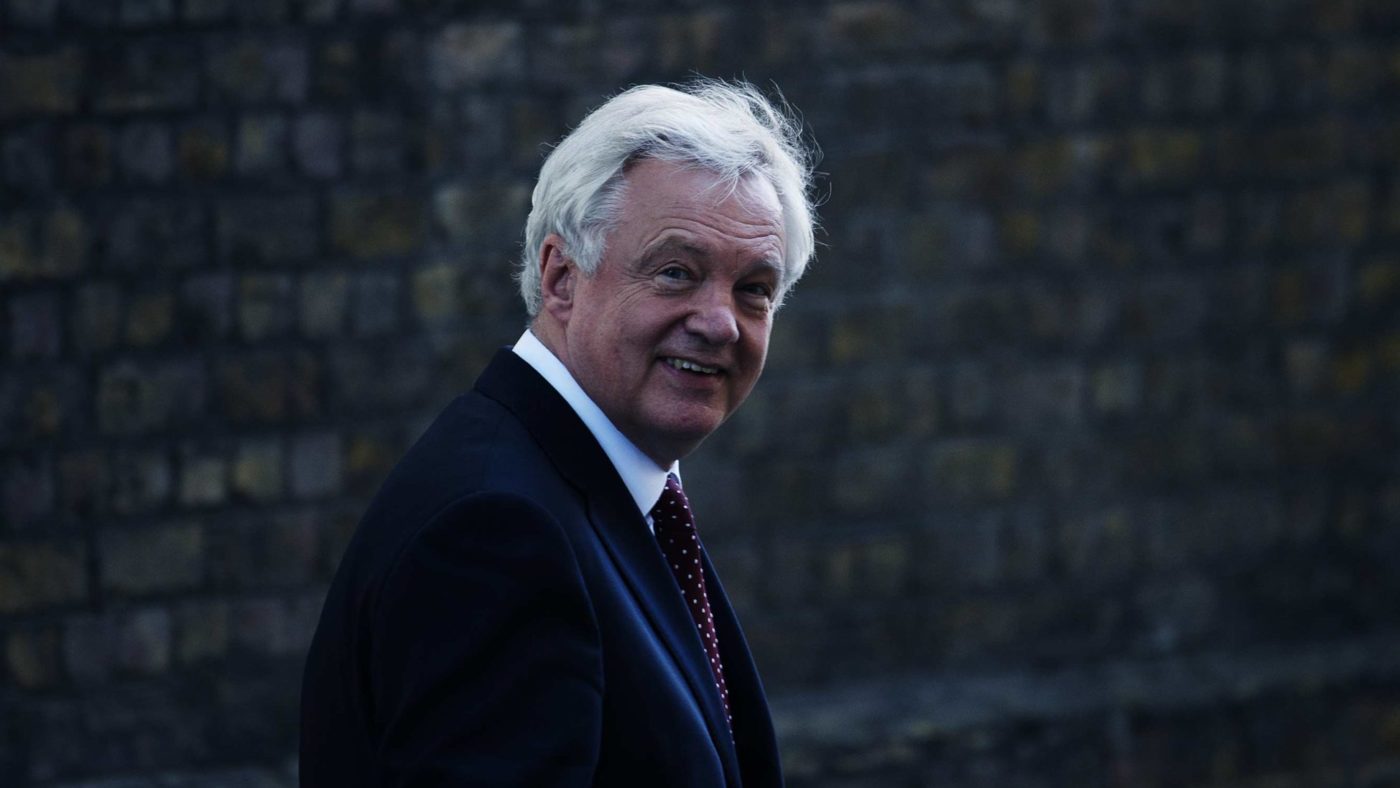“She has got to have a Brexit Secretary who will deliver on her strategy. That’s not weakening — that’s actually enhancing the effectiveness of her strategy.”
As rationales for Cabinet resignations go, this — from David Davis on the Today programme this morning — was certainly novel. The only real surprise was that it had taken him so long to call it quits – his repeated threats to resign so many times had become something of a running joke among wry lobby journalists.
In doing so he has crystallised Tory MPs’ dissatisfaction with May’s negotiating strategy. By accusing the Prime Minister of “giving away too much and too easily” to Brussels, he has given voice to the feelings of many of his own colleagues.
As veteran Eurosceptic Bernard Jenkin put it, Davis had been left in a “completely impossible position” by Friday’s ultra-fudge of an agreement. From the moment May came out with her “12 Brexit principles” it was a question of how long, not whether, she could hold the line. That it took a matter of days for ministers to start resigning was not especially shocking – indeed, it was a surprise she managed to prevent any of the Cabinet upping sticks during the meeting itself.
She will be very pleased that Dominic Raab has agreed to take Davis’ place. As Davis’ own former chief of staff, his pro-Brexit credentials are impeccable, while his legal training also makes him a good fit for the brief. The Prime Minister will now be under pressure to give him more of a hands-on role than Davis was allowed – especially to avoid MPs’ suspicions that civil servant Olly Robbins is piloting the Government towards the softest possible Brexit. As an EU source put it to The Sun today: “We’re already used to negotiating with Olly Robbins so this resignation doesn’t affect the negotiation.”
All of which lends an added frisson to what would already have been a supremely tense afternoon for the Prime Minister, who has to defend her Chequers proposal in the Commons before addressing Conservative MPs and Peers at a 1922 Committee meeting.
Much now rests on the shoulders of Raab and the remaining Cabinet Brexiteers. Like May herself they face a difficult balancing act – risk undermining their own credibility among MPs and party faithful, or risk undermining May even further and in doing so making the prospect of a Corbyn government that bit more real.
And what now for the would-be Tory rebels? For all the talk of votes of confidence and bringing down May, the arithmetic does not appear to be in the Brexiteers’ favour. They might manage to gather the 48 signatures needed to trigger a vote of no confidence, but it’s extremely unlikely many colleagues would be persuaded to risk the prospect of another election and a possible Corbyn government.
They might well accuse May of not having an adequate plan, but beyond making demands about the kind of Brexit they want, the most ardent Brexiteers don’t really have a concrete plan — or viable candidate — of their own. Jacob Rees-Mogg this morning suggested that without Davis’ “imprimatur” on the Government’s strategy, there was little prospect of Tory MPs backing it. This is slightly misleading, in the sense that he and the other European Research Group MPs were not likely to offer their support even if Davis had remained in post.
Meanwhile, the rest of the country looks on with Danny Dyer-like bafflement.
Their best hope is to force May to change strategy without having to resort to any of the messy business of votes of confidence or leadership elections, with all their unpredictable consequences. The fact May felt sufficiently emboldened to plough on with a plan she knew would be unacceptable to many of her own party suggests she may have calculated that they too were going down a bit of a blind alley.
That said, the difficulty she faces getting her plan through her own party does make the prospect of a “no deal” exit look more likely than ever – not that that would particularly bother the Brexit true believers on her own benches.
So, we have reached a position where pretty much everyone in the Conservative party faces a dilemma of some sort. Boris Johnson is perhaps the living embodiment of his party’s predicament, fluttering from one view to another depending on the day of the week. If he does still harbour leadership ambitions, they will have been dealt quite a blow by his reluctance to throw in his lot with Davis and the other Brexit true believers. It didn’t take much to read between the lines when Davis said this morning: “People can only make these decisions of principle by themselves.”
Anyone claiming to know what will happen next is lying to you. What is clear is that, with eight months until Britain leaves the EU, Davis’s resignation means an alarmingly wide range of outcomes remain possible.


